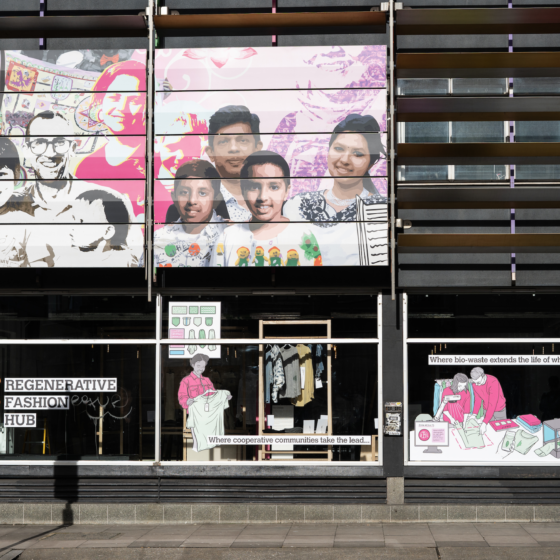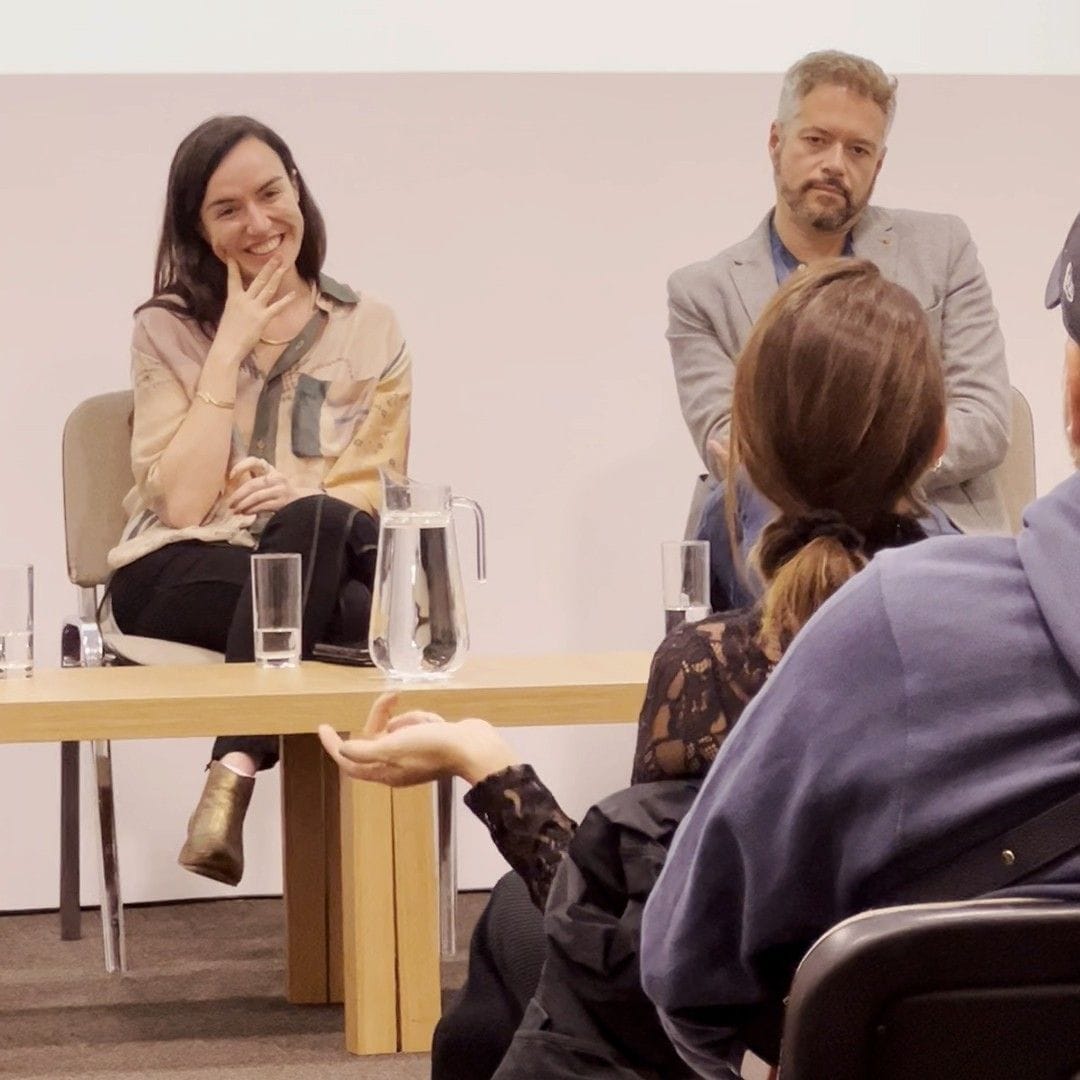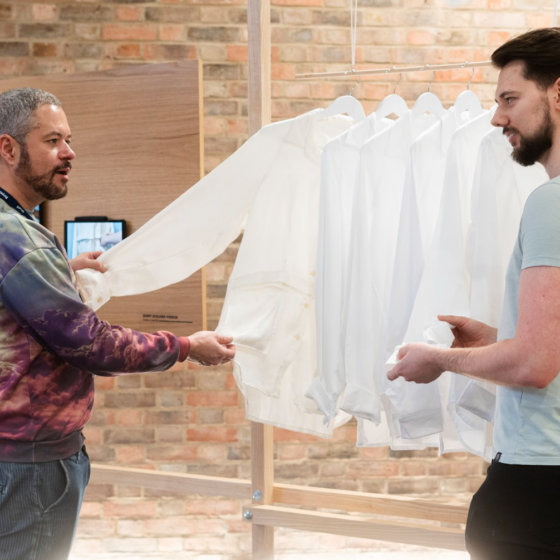
The Regenerative Fashion Hub opens at Rich Mix
Explore the future of sustainable fashion and textiles 23 February - 21 March 2024
The Royal College of Art's (RCA) UKRI Interdisciplinary Textiles Circularity Centre recently took centre stage at the Embassy of Brazil in London.

The event was part of the program for the exhibition ‘Brazil: Creating Fashion for Tomorrow,’ which highlights the work of Brazilian creators and innovators committed to socio-environmental values.
One of the highlights of the event was the introduction of innovative products and experiences designed to engage consumers in the concept of the circular economy. Morag Seaton, an MA Fashion student graduating in 2023, presented a modular shirt system aimed at extending the lifespan of clothing items, thereby reducing waste and encouraging sustainable fashion practices.
The panel discussion was a convergence of influential voices in the fashion and sustainability realm. Curator and journalist Lilian Pacce, renowned author, activist, and co-founder of Fashion Revolution, Orsola de Castro, shared their valuable insights. The panel also featured Eloisa Artuso, Executive Director at Instituto Febre and International Strategy at Brasil Eco Fashion Week (BEFW), who is a member of the Textiles Circularity Centre’s Advisory Board. Additionally, the event included the participation of accomplished Fashion Designer Joao Maraschin.
The dialogue at the Embassy of Brazil in London served as a platform for exploring the importance of circular fashion and textiles in a world increasingly aware of environmental concerns. Dr. Bruna Petreca and Ricardo O’Nascimento, along with their fellow panelists, illuminated the path towards a more sustainable and responsible fashion industry, one that embraces circularity and fosters innovation in the pursuit of a brighter, eco-friendly future.
The RCA’s UKRI Interdisciplinary Textiles Circularity Centre’s presence at this event demonstrates the institution’s commitment to advancing sustainable practices in the world of fashion and textiles in an international context.
Photographty credit: Albert Palen and Marilia Biasi

Explore the future of sustainable fashion and textiles 23 February - 21 March 2024

We are pleased to announce additional dates for our open house sessions at the Royal College of Art this Saturday 3rd February and Thursday 8th February.